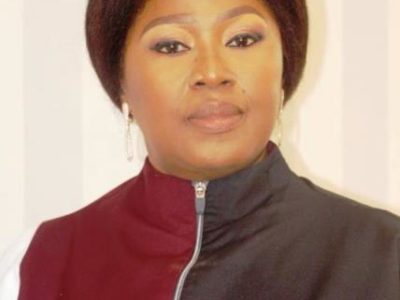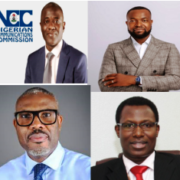By Sonny Aragba-Akpore
In their quest to boost revenue collection for the government, the Advertising Regulations Council of Nigeria (ARCON) and telecommunications regulator,. The Nigerian Communications Commission (NCC) recently made very important moves that are likely to jolt service providers and consumers.
The NCC held a public inquiry and engaged stakeholders on its proposed draft guidelines for promotional advertising by telecommunications service providers.
RELATED: Social media censorship cases decreased by 35% in 2021 – Africa is most censored region
Earlier in August, ARCON announced a ban on the use of foreign models for every advertising material for the Nigerian public. This it said was in line to the Federal Government policy to encourage local talents creation. This new ban took effect from October 1,2022.
While advertising practitioners were still trying to grapple with the new reality, ARCON dragged Meta Corporations, owners of Facebook, Instagram and Whatsapp to court for violating the extant rules for advertising exposure in Nigeria.
ARCON is asking for N30billion for Meta’s alleged illegal operations/advert exposure without authorization.
It said in a statement: “ARCON reiterates that it would not permit unethical and irresponsible advertising on the Nigeria’s advertising space;” adding however that the Council is not regulating the online media space. “Rather, its focus is on advertising and marketing communications on the online platforms in line with its establishment Act”.
Subscribers as well as those who are simply onlookers of these social media platforms may have been jolted by this wakeup call by ARCON especially in the light of other advertising regulators in Nigeria and wonder who is really in charge of advertising regulations and what modalities are in place to ensure compliance?
ARCON stated that this is a violation of the extant advertising Law in Nigeria, adding that Meta Platforms Incorporated’s continued exposure of unvetted adverts had also led to loss of revenue to the Federal Government.
How has this happened and how was vetting supposed to be carried out. ARCON has left many questions unanswered but does not think so.
It is therefore seeking N30bn in sanction for the violation of the advertising laws and for loss of revenue as a result of Meta Incorporated’s continued exposure of unapproved adverts on its platforms.
But while, we may not question ARCON,s right to enforce what it considers to be its responsibility part of which it inherited from its precursor the Advertising Practitioners Council of Nigeria (APCON) among others :
“•Securing in accordance with the provisions of this Act, the establishment and maintenance of a register of persons entitled to practice advertising in Nigeria and determining acceptable standards of all advertisements exposed in mass media in Nigeria,
- Regulating and controlling the practice of advertising in all its aspects and ramifications,
- Performing the other functions conferred on the Council by this Act.”
Even when oversight is established that there is the power for it but there are no clear guidelines on how social media should be regulated and even corporate organizations may not even know when and where to draw the lines?
ARCON says it made spirited efforts to dialogue with representatives of Meta platforms Corporations through AT3 Resources Limited in Nigeria without any response and so the regulatory body for Nigeria’s advertising ecosystem, is seeking a declaration, among others, that the continued publication and exposure of various advertisements directed at the Nigerian market through Facebook and Instagram platforms by Meta Platforms Incorporated without ensuring same is vetted and approved before exposure is illegal, unlawful and a violation of the extant advertising law in Nigeria.
ARCON stated that Meta Platforms Incorporated’s continued exposure of unvetted adverts had also led to loss of revenue to the Federal Government.
So the N30bn in sanctions for the violation of the advertising laws and for loss of revenue as a result of Meta Incorporated’s continued exposure of unapproved adverts on its platforms will serve as deterrent to others.
ARCON says “ it would not permit unethical and irresponsible advertising on Nigeria’s advertising space.”
ARCON officials think that the decision to initiate a legal action became necessary after several attempts to bring the company to the negotiation table proved abortive.
They claimed they wrote to some online platform owners, requesting for a meeting to agree on the regulatory framework and protocol for advertising on online platforms.
“Meta neither acknowledged nor attended the meeting. After a follow-up call, we got a promise that they will revert formally which never came.”
This is where ARCON thinks, it could draw the line but will this line of action address the situation especially in a society where laws are made, judgment given but hardly enforced?
Couldn’t ARCON have waited a little while and bring everyone to a negotiation table?
Also in August, ARCON came out to ban the use of foreign models as voice over for any advertising exposure in the Nigerian space.
It said in a statement: “In line with the Federal Government’s policy of developing local talent, inclusive economic growth and the need to take necessary steps and actions aimed at growing the Nigerian advertising industry, the Advertising Regulatory Council of Nigeria, being the apex advertising, advertisement and marketing communications’ regulatory agency of the Federal Government, has in accordance with its statutory mandates, responsibilities and powers as conveyed by the Advertising Regulatory Council of Nigeria Act No. 23 of 2022, bans the use of foreign models and voice-over artists on any advertisement used on the Nigerian advertising space with effect from October 1,2022.
The move, which is the first of its kind, follows the Federal Government’s pledge that promises to develop local talent, drive inclusive economic growth, and promote the advertising industry in Nigeria.
This ban will cover all non-Nigerians as well as a number of western, white actors who have appeared regularly on the country’s television adverts.
“All advertisements, advertising and marketing communications materials are to make use of only Nigerian models and voice-over artists.”
It said ongoing campaigns are permitted to run out their terms. However, subsequent applications for revalidation for continued exposure of such materials will not be granted by the Advertising Standards Panel adding that “Advertisers, advertisement agencies, media houses, advertising community and the general public are hereby enjoined to take note.”
While it is within the purview of ARCON to regulate advertising practice in the country by the extant laws, but it behoves of the agency to pursue its mandate within the limits of the law and not the way it has begun with the Meta matter. Online advertising is not controlled by even the owners of the platforms especially in the era of social media where everyone is a publisher. Anybody could post any material online including adverts and the ARCON has no way of monitoring such especially when it is not the host and so can hardly have access as such.
It is possible to monitor newspaper and electronic media advertisements to ensure compliance of the local talent template of government. Pursuing online advert exposure may be a wild goose chase.
But ARCON could reopen discussions with the Facebook, Instagram and Whatsapp representatives to work out modalities and guidelines that will be in tandem with its laws.
Also in August this year, the Nigerian Communications Commission (NCC) conducted stakeholder meeting and inquiries on draft template for promotional advertising by telecommunications operators in the country.
Specifically, operators will be guided by the new rules for any promotional advertising to which certain fees must be paid to the NCC before approval are obtained.
Although, this process has been running before now, but the upward review by a very high percentage of what it used to be is seen by the operators as a big problem especially since such adverts also go through ARCON before and payment s made to obtain permit for publication. This brings the operators to multiple payments for any advert exposure.
This, they see as critical so much that it may affect tier 2 (a veiled reference to subscribers)of the level of responsibility. That is looking forward to passing parts of this payment to subscribers.
We can understand NCC,s position in the pursuit of an important part of its regulatory oversight especially to ensure fair play and ensure operators don’t go on anti-Marketing campaign but to play by the rules hence the need to create a level playing ground for every advertisement that is exposed.
The NCC said “the extant Guidelines were developed in 2011 and in line with continuous developments and innovations by service providers, the Commission deemed it fit to review same”.
The Guidelines on Advertisements and Promotions (as amended) sets minimum requirements and standards for promotional advertisements of products and services, ensuring ethical marketing and promotional standards by licensees. It ensures that there is fair competition among licensees and consumers are adequately protected from invasive and unethical marketing practices.
It is still too early in the day to conclude on the grave implications of the actions of ARCON and NCC, but the truth is that if both government agencies go ahead with the implementation of their set goals, the grass suffers in a fight of elephants.


Author: Sonny Aragba-Akpore































